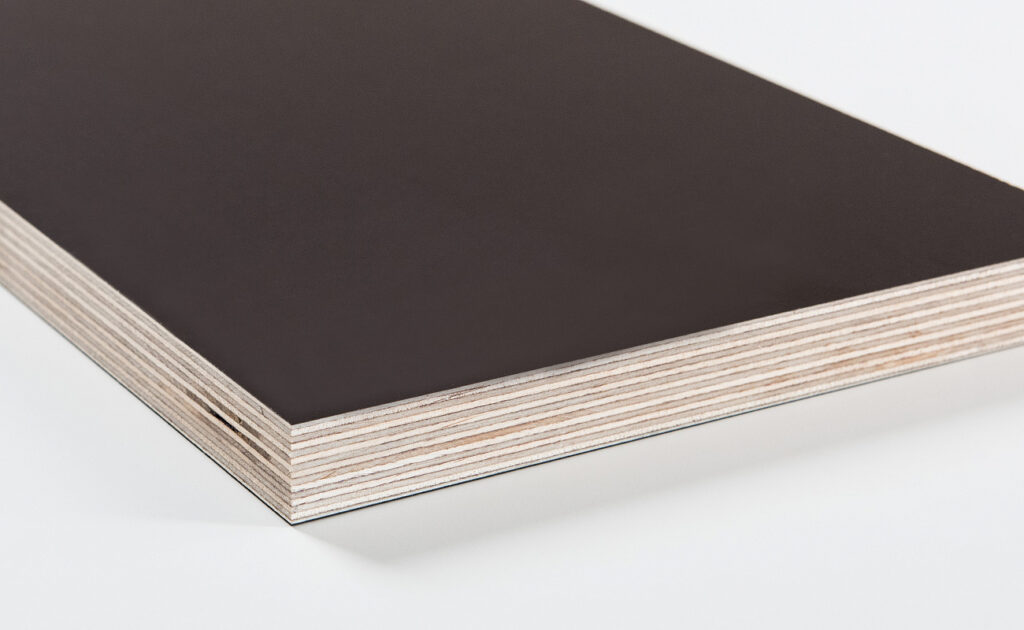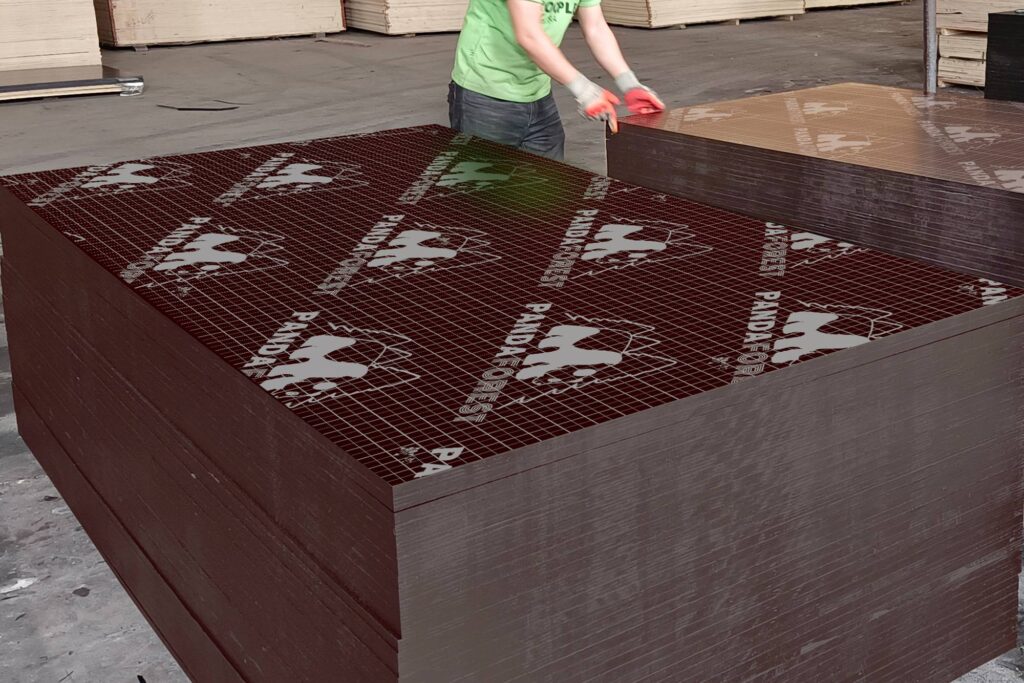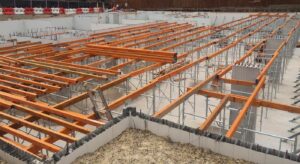Selecting the Right Formwork Plywood for Various Construction Types
Formwork plywood is an essential component in the construction industry, providing structural support and stability during the building process. It plays a crucial role in ensuring the integrity and durability of structures. However, with numerous options available, selecting the right formwork plywood can be a daunting task. In this article, we will explore the basics of formwork plywood, factors to consider when choosing it, different types available, and how to match it to specific construction types.
Understanding the Basics of Formwork Plywood
Formwork plywood, also known as shuttering formply Australia, is a sheet material that is commonly used to create temporary molds called formworks. These formworks act as a support structure, allowing concrete to be poured and shaped until it sets and hardens. Once the concrete has hardened, the formwork is removed, and the finished structure remains.
Formwork plywood comes in various thicknesses and sizes to accommodate different construction needs. It is designed to withstand the pressure exerted by the wet concrete without deforming, ensuring that the final structure retains its intended shape and dimensions. The smooth surface of formwork plywood helps create a flawless finish on the concrete surface. Learn more about formwork plywood cost-benefit analysis for builders.
Definition of Formwork Plywood
Formwork plywood is made by bonding multiple layers of wood veneers together with adhesive. The layers are arranged in a cross-grain pattern to enhance strength and prevent warping. This construction method gives formwork plywood its exceptional strength and durability.
The quality of the adhesive used in bonding the wood veneers is crucial in determining the performance and longevity of formwork plywood. High-quality adhesives ensure that the layers remain securely bonded even under the harsh conditions of a construction site, such as exposure to moisture and varying temperatures.
Importance of Formwork Plywood in Construction
Formwork plywood is an essential element in construction projects as it provides temporary support for the concrete until it gains enough strength to stand on its own. It also helps shape the concrete into the desired form, ensuring accuracy and precision in the construction process. Properly selected and installed formwork plywood contributes to the structural integrity and quality of the final structure.
Additionally, formwork plywood is reusable, making it a cost-effective and sustainable choice for construction projects. With proper handling and maintenance, formwork plywood can be used multiple times, reducing waste and overall project expenses. Its versatility and reusability make it a preferred material for contractors looking to optimize efficiency and minimize environmental impact.
Factors to Consider When Choosing Formwork Plywood
When selecting formwork plywood, several factors need to be considered to ensure it meets the specific requirements of the construction project.
Formwork plywood is a critical component in concrete construction, providing the necessary support and structure for pouring and shaping concrete into desired forms. The choice of formwork plywood can significantly impact the quality and efficiency of the construction process.
Material Quality
The quality of the formwork plywood material is crucial for ensuring its performance and longevity. High-quality plywood should be made from durable wood species, such as hardwood or tropical hardwood, to withstand the stresses and pressures exerted during the concrete pouring process. Opting for plywood with a reputable certification ensures that it meets the necessary quality standards.
In addition to the type of wood used, the manufacturing process also plays a significant role in determining the quality of formwork plywood. Plywood that undergoes proper treatment and bonding techniques is more resistant to warping, delamination, and moisture damage, ensuring its durability and reliability on the construction site.

Plywood Thickness
Plywood thickness is another vital consideration when selecting formwork plywood. The thickness required will depend on the height of the formwork, the amount of concrete it needs to support, and the anticipated load-bearing capacity. Thicker plywood panels offer increased strength and stability, especially for large-scale construction projects.
Moreover, the thickness of the plywood can also impact the surface finish of the concrete. Thicker plywood with smooth surfaces can help achieve a better concrete finish with fewer blemishes and imperfections, enhancing the overall aesthetics of the structure.
Load-Bearing Capacity
The load-bearing capacity of formwork plywood should align with the specific requirements of the construction project. It is crucial to consider the weight of the concrete, equipment, and workers that the formwork will bear. Choosing plywood with adequate load-bearing capacity ensures the safety and stability of the structure during the construction process.
Furthermore, considering the reusability of formwork plywood is essential for cost-effectiveness and sustainability in construction projects. Durable plywood with high load-bearing capacity and resistance to wear and tear can be reused multiple times, reducing material waste and project expenses in the long run. To learn more about how to choose formwork that's environmentally friendly and sustainable, click here.
Different Types of Formwork Plywood
Formwork plywood is available in various types, each offering unique characteristics and suitability for specific construction applications.
When selecting the right formwork plywood for a construction project, it is essential to consider factors such as the intended use, environmental conditions, and budget constraints. Understanding the different types of formwork plywood available can help builders and contractors make informed decisions to ensure the success and durability of their structures.
Softwood Plywood
Softwood plywood is the most commonly used formwork plywood due to its affordability, versatility, and availability. It is usually made from coniferous trees and offers good strength and stability. Softwood plywood is suitable for general construction purposes and is often used in residential and commercial building projects.
Due to its cost-effectiveness and ease of use, softwood plywood is a popular choice for formwork applications where the concrete finish is not a primary concern. Its smooth surface allows for easy demolding, making it ideal for projects where speed and efficiency are crucial.
Hardwood Plywood
Hardwood plywood is manufactured from hardwood trees, such as oak or birch, making it more durable and resistant to wear and tear compared to softwood plywood. It provides excellent strength and is ideal for heavy-duty construction projects that require enhanced stability, such as bridges or high-rise buildings.
While hardwood plywood may be more expensive than softwood plywood, its superior durability and strength make it a preferred choice for projects that demand long-lasting performance and structural integrity. The natural beauty of hardwood plywood also makes it a popular option for projects where aesthetics are a consideration, such as architectural formwork elements.
Tropical Plywood
Tropical plywood is known for its exceptional strength and durability, making it highly suitable for demanding construction projects in humid or tropical climates. It is resistant to moisture and retains its structural integrity, ensuring long-lasting performance even in challenging environmental conditions.
Due to its resistance to fungal decay and moisture damage, tropical plywood is often used in marine construction, concrete formwork exposed to the elements, and outdoor structures subject to high humidity levels. Its high density and strength make it a reliable choice for projects where structural stability is paramount, offering peace of mind to builders and engineers working in harsh environmental conditions.

Matching Formwork Plywood to Construction Types
Choosing the right formwork plywood involves considering the specific requirements of the construction type and the expected load-bearing capacity. It is essential to select the appropriate plywood to ensure the structural integrity and stability of the concrete formwork.
Formwork plywood plays a crucial role in construction projects by providing the necessary support for freshly poured concrete until it cures and gains sufficient strength. Different types of formwork plywood offer varying levels of strength, durability, and resistance to environmental factors, making it important to match the plywood to the specific demands of the project.
Residential Buildings
In residential construction, where the load requirements are relatively lower, softwood plywood is commonly used. It provides the necessary strength and stability, ensuring the smooth pouring and shaping of concrete for foundations, slabs, and walls. Softwood plywood is cost-effective and easy to work with, making it a popular choice for residential projects.
Commercial Buildings
For commercial construction projects that involve higher loads and larger-scale structures, hardwood plywood is often preferred. Its enhanced durability and load-bearing capacity make it suitable for supporting the weight of reinforced concrete beams, columns, and floors. Hardwood plywood is known for its strength and resistance to wear and tear, making it ideal for high-traffic areas in commercial buildings.
Infrastructure Projects
Infrastructure projects, such as bridges and tunnels, require formwork plywood with exceptional strength and resistance to environmental elements. Tropical plywood is well-suited for such projects as it offers superior durability and moisture resistance, ensuring the longevity and stability of the structures. Tropical plywood is capable of withstanding harsh weather conditions and exposure to moisture, making it a reliable choice for infrastructure projects that demand long-lasting performance.
Choosing the right formwork plywood is crucial for the success of any construction project. By understanding its basics, considering important factors, and matching the plywood type to the specific construction type, builders and contractors can ensure the structural integrity, safety, and longevity of their projects. Proper selection and utilization of formwork plywood contribute to the efficiency and quality of construction work, ultimately leading to durable and resilient structures.


